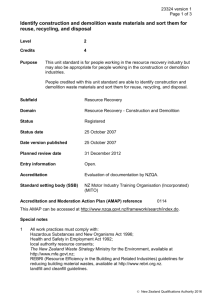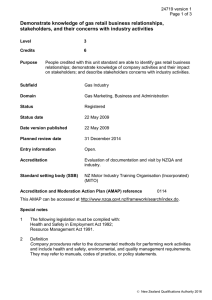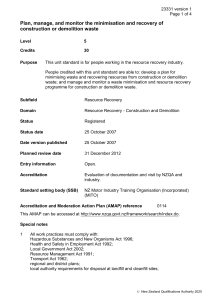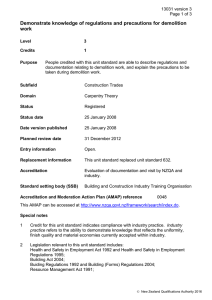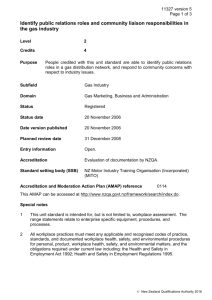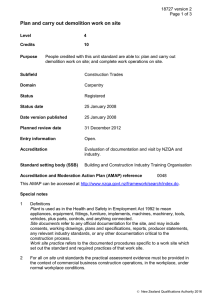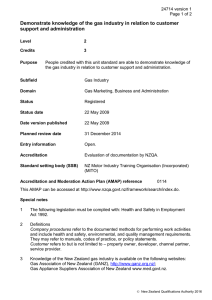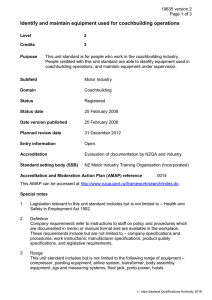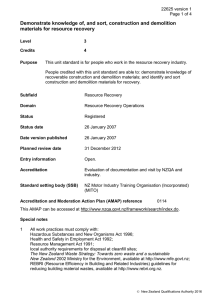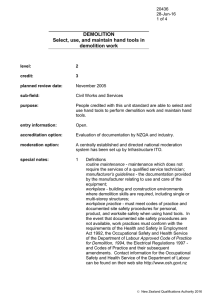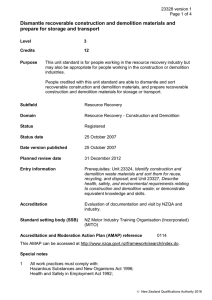Demonstrate introductory knowledge of constraints on construction and demolition waste
advertisement
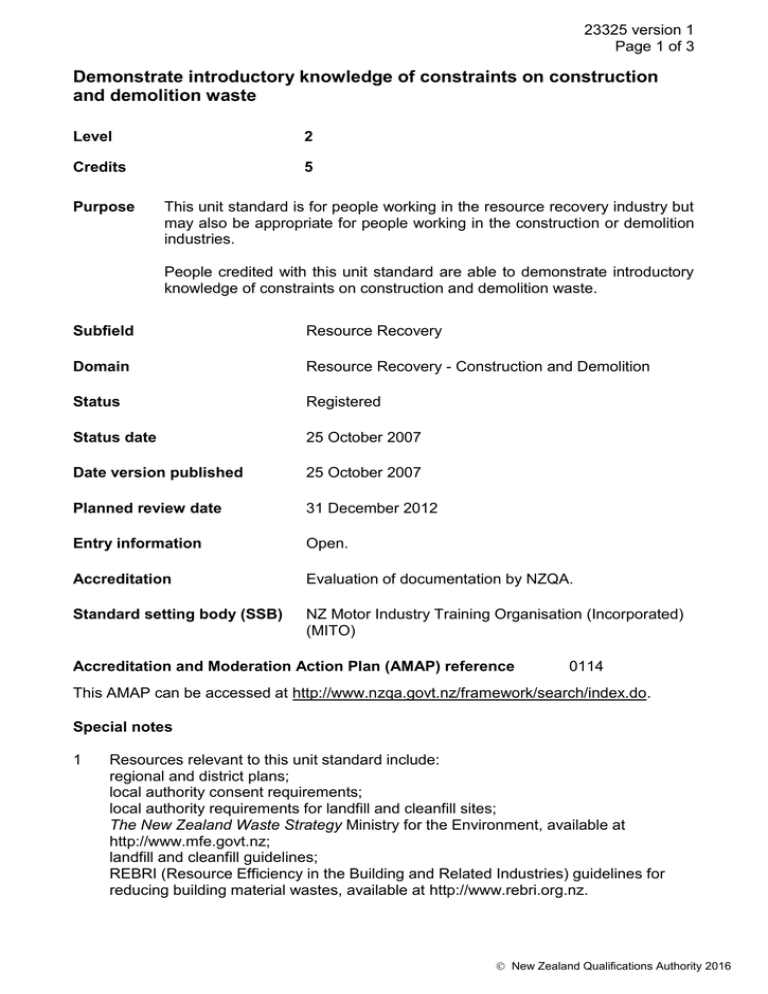
23325 version 1 Page 1 of 3 Demonstrate introductory knowledge of constraints on construction and demolition waste Level 2 Credits 5 Purpose This unit standard is for people working in the resource recovery industry but may also be appropriate for people working in the construction or demolition industries. People credited with this unit standard are able to demonstrate introductory knowledge of constraints on construction and demolition waste. Subfield Resource Recovery Domain Resource Recovery - Construction and Demolition Status Registered Status date 25 October 2007 Date version published 25 October 2007 Planned review date 31 December 2012 Entry information Open. Accreditation Evaluation of documentation by NZQA. Standard setting body (SSB) NZ Motor Industry Training Organisation (Incorporated) (MITO) Accreditation and Moderation Action Plan (AMAP) reference 0114 This AMAP can be accessed at http://www.nzqa.govt.nz/framework/search/index.do. Special notes 1 Resources relevant to this unit standard include: regional and district plans; local authority consent requirements; local authority requirements for landfill and cleanfill sites; The New Zealand Waste Strategy Ministry for the Environment, available at http://www.mfe.govt.nz; landfill and cleanfill guidelines; REBRI (Resource Efficiency in the Building and Related Industries) guidelines for reducing building material wastes, available at http://www.rebri.org.nz. New Zealand Qualifications Authority 2016 23325 version 1 Page 2 of 3 2 Definition Company procedures means the documented methods for performing work activities and include health and safety, environmental, and quality management. Elements and performance criteria Element 1 Demonstrate introductory knowledge of constraints on construction and demolition waste. Performance criteria 1.1 National targets for construction and demolition waste are identified in accordance with The New Zealand Waste Strategy. 1.2 Constraints on construction and demolition waste activities are identified in accordance with local authority requirements and company procedures. Range includes but is not limited to – dust, noise, odour, visual appearance, litter, vehicle movements. 1.3 Constraints on storm water and sediment control at construction and demolition sites are identified in accordance with local authority requirements and company procedures. 1.4 Constraints on trade waste at construction and demolition sites are identified in accordance with local authority requirements and company procedures. 1.5 Constraints on construction and demolition waste loading and transport are identified in accordance with local authority requirements. Range 1.6 Constraints on handling and storage of construction and demolition waste are identified in accordance with company procedures. Range 1.7 includes but is not limited to – licensing of operators, collection conditions, transport conditions. includes but is not limited to – plaster board, windows, goods for reuse. Site workers’ responsibilities are identified and explained in accordance with industry guidelines. Range includes but is not limited to – use of materials, sorting of waste, reporting. Please note Providers must be accredited by NZQA, or an inter-institutional body with delegated authority for quality assurance, before they can report credits from assessment against unit standards or deliver courses of study leading to that assessment. New Zealand Qualifications Authority 2016 23325 version 1 Page 3 of 3 Industry Training Organisations must be accredited by NZQA before they can register credits from assessment against unit standards. Accredited providers and Industry Training Organisations assessing against unit standards must engage with the moderation system that applies to those standards. Accreditation requirements and an outline of the moderation system that applies to this standard are outlined in the Accreditation and Moderation Action Plan (AMAP). The AMAP also includes useful information about special requirements for organisations wishing to develop education and training programmes, such as minimum qualifications for tutors and assessors, and special resource requirements. Comments on this unit standard Please contact the NZ Motor Industry Training Organisation (MITO) info@mito.org.nz if you wish to suggest changes to the content of this unit standard. New Zealand Qualifications Authority 2016
